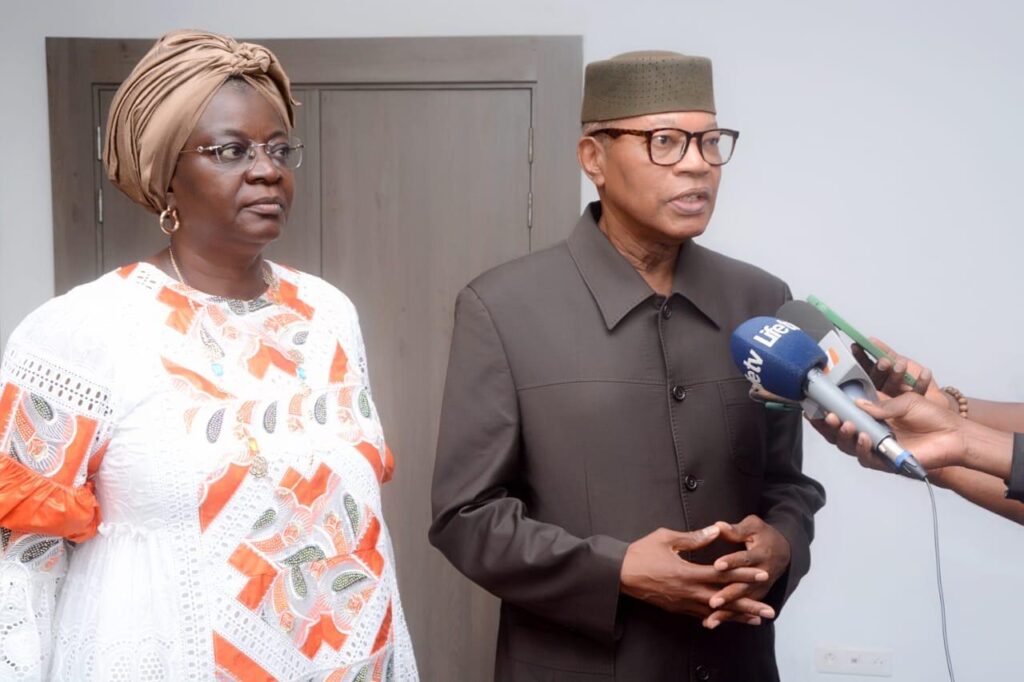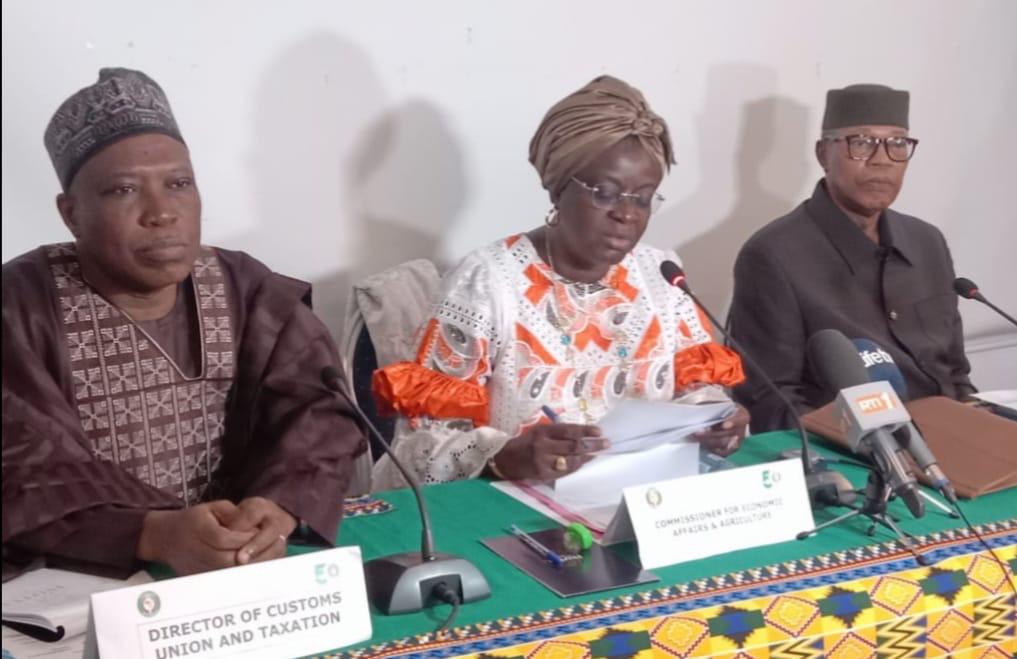ECOWAS TLS Task Force Charts Path to Barrier-Free Trade in West Africa Region.
By Raymond Enoch
The TLS, launched in 2016, is a flagship program of the Economic Community of West African States (ECOWAS) designed to foster intra-regional trade by removing barriers such as tariffs, customs bottlenecks, and non-tariff barriers among Member States. Now, nearly a decade on, the Task Force is evaluating the road travelled — and the road ahead.

The review meeting was graced by influential figures including Ms. Massandjé Touré-Litse, ECOWAS Commissioner for Economic Affairs and Agriculture, and Dr. Mohamed Ibn Chambas, Chairman of the TLS Task Force. Also in attendance were directors of customs and taxation from Member States, alongside civil society actors and representatives of advocacy groups such as AOCTAH/WACTAF, the Borderless Alliance, ENDA-CACID, NANTS, and ROPPA.

In his opening remarks, Dr. Chambas highlighted the significance of the gathering:
“We are not merely reviewing eight years of action, but recalibrating our efforts to ensure the original vision of the TLS — a seamlessly connected West African market — becomes a practical, lived reality for businesses and citizens alike.”
Since its inception, the TLS Task Force has conducted field missions across the ECOWAS region to monitor and assess compliance with free trade protocols. The meeting acknowledged substantial progress in trade facilitation, including increased awareness of TLS benefits among traders, simplification of some customs procedures, and modest increases in intra-regional trade flows.
However, delegates also confronted persistent challenges. Reports from the field identified several hurdles, including arbitrary road checkpoints, unofficial levies, low levels of implementation among certain Member States, and weak enforcement of ECOWAS protocols at border points.
In light of ECOWAS’ upcoming golden jubilee, participants saw the stock-taking exercise as a platform not just for reflection but for transformation. Among the key proposals tabled were:
Strengthening the legal mandate and operational capacity of the TLS Task Force.
Enhancing digital trade facilitation tools and cross-border data exchange.
Deepening collaboration between governments and regional advocacy networks.
Instituting stronger penalties for non-compliance by Member States.
Ms. Touré-Litse emphasized the connection between trade liberalisation and food security, value chain development, and economic integration:
“Trade is not only about goods; it’s about livelihoods, peace, and prosperity. We must tear down walls of bureaucracy and build bridges of cooperation.”
Civil society actors at the meeting pushed for a more inclusive approach to regional trade governance. The presence of farmers’ groups, transport unions, and trade associations underscored the urgent call for practical reforms that reach beyond official corridors to the realities on the ground.
As ECOWAS looks toward its 50th anniversary, the TLS Task Force aims to transition from pilot initiatives to full-scale implementation of an open regional trade system. The next phase will require deeper political will, consistent enforcement, and stronger synergy among all stakeholders.
The Abidjan meeting ended with a renewed commitment to build a truly borderless West Africa — one where trade is not obstructed but accelerated, and where economic integration is not aspirational, but actionable.
“The past eight years have shown us what is possible,” Dr. Chambas concluded. “The next phase must show what is achievable when we act boldly and collectively.”








